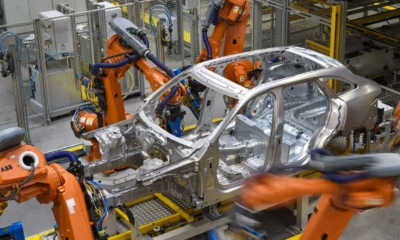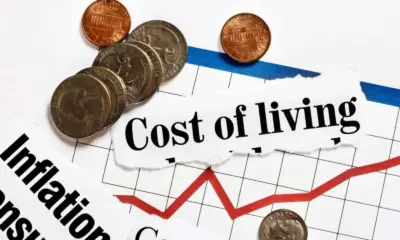Politics
UK Election 2026 Economy at the Crossroads

As the United Kingdom approaches the 2026 general election, economic challenges and strategic policy choices dominate the national debate. After years of inflation pressures, shifting trade landscapes, and technological transformation, voters are focused on stability, affordability, and long term growth. Political parties present contrasting visions for the economy, setting the stage for an election that could reshape fiscal policy, public services, and the investment climate.
The outcome of this election will influence how the UK manages living costs, global competitiveness, and the future of its workforce. With economic confidence central to voter concerns, parties are highlighting policies designed to strengthen financial security for households and businesses.
Cost of Living Remains the Central Issue
The cost of living crisis remains the top priority for millions of voters. Households continue to face high prices for food, transport, housing, and energy even as inflation stabilizes. Many families report limited budget flexibility and ongoing pressure on savings.
Political parties propose a range of actions including targeted subsidies, energy price support, tax adjustments, and wage growth measures. The effectiveness of these proposals will be key to earning voter trust. The election debate centers on which policies can offer sustainable relief rather than short term fixes.
Balancing Public Spending and Fiscal Responsibility
Fiscal policy is another major point of contention. Parties disagree on how to balance public investment with responsible budgeting. Some advocate for increased spending on infrastructure, healthcare, education, and green energy. Others prioritize controlled spending and debt reduction to maintain long term financial health.
The next government must decide how to navigate economic pressures while ensuring that essential public services remain fully supported. Voters closely evaluate how each party plans to fund its commitments.
Business Confidence and Investment Climate
The business sector seeks clarity on future regulations, tax policy, and investment incentives. Companies in finance, manufacturing, technology, and retail want predictable conditions that support growth and job creation.
Political parties highlight strategies to attract foreign investment, support local industries, and rebuild supply chains. London’s role as a global financial center remains crucial. Business leaders emphasize that a stable economic environment is essential to maintaining competitiveness in international markets.
The Future of Trade and Global Partnerships
The UK continues to redefine its place in global trade following Brexit. Trade agreements with Europe, the United States, and Asia remain essential to long term growth.
Election debates focus on how the next government will approach market access, trade diversification, and international cooperation. Strengthening EU business ties, expanding Asia Pacific partnerships, and deepening Commonwealth engagement are central themes shaping trade discussions. The approach taken will influence export growth and investor confidence.
Technology, Productivity, and Workforce Modernization
Technological innovation is transforming the UK economy. Artificial intelligence, automation, cloud systems, and digital finance are creating new industries while reshaping existing roles. Productivity growth remains a national challenge, and young workers require advanced digital skills to compete in a global economy.
Political parties propose education reforms, skills programs, and incentives for technology adoption. Strengthening the workforce through training and job creation programs is critical for long term economic success. The election debate addresses how to create a labour market that can adapt to rapid technological change.
Green Energy and Climate Commitments
Climate policy remains a central issue as the UK works toward net zero targets. Investments in renewable energy, clean transport, and sustainable infrastructure require long term planning. The debate includes questions about funding, regulatory frameworks, and industry participation.
Voters want clarity on how climate commitments will affect household energy bills and job opportunities. Green industrial strategies are emerging as a significant part of party manifestos. The next government must balance environmental responsibility with economic resilience.
Public Services and Social Welfare
Public services remain a major concern. The NHS, education system, and social care services face capacity issues and increasing demand. Parties propose different approaches to funding, management, and reform.
The ability to improve public services while maintaining budget discipline will shape voter decisions. Strong social support frameworks are essential for economic stability and community well being.
Political Landscape and Voter Expectations
The political environment is highly competitive, with parties appealing to both traditional bases and undecided voters. Economic performance over the next year will strongly influence public sentiment.
Voters want leadership that can offer practical solutions to long standing challenges. The 2026 election is not only about political identity; it is about which economic strategy can secure the nation’s long term prosperity.
A Pivotal Election for Britain’s Economic Direction
The UK Election of 2026 represents a pivotal moment in defining the country’s economic trajectory. With living costs, trade relations, technological transformation, and public services at the center of debate, the next government will shape the nation’s financial landscape for years to come.
As voters evaluate competing visions for the economy, they face a clear choice between differing approaches to fiscal policy, investment, and social support. The election’s outcome will determine how the United Kingdom navigates a rapidly changing global environment.


















